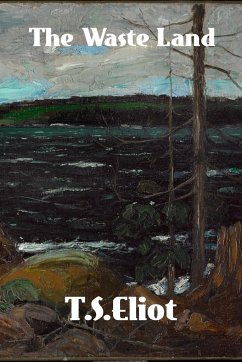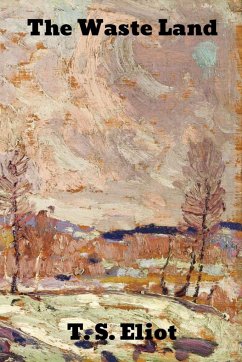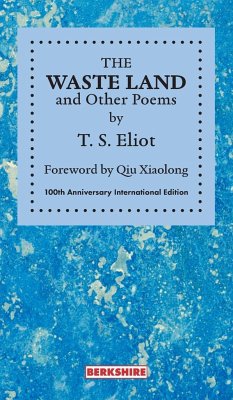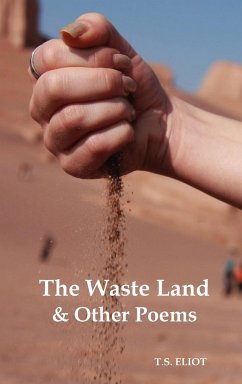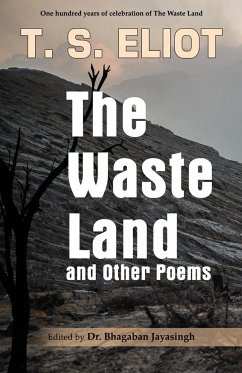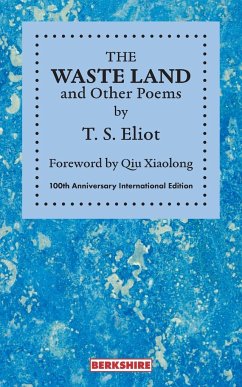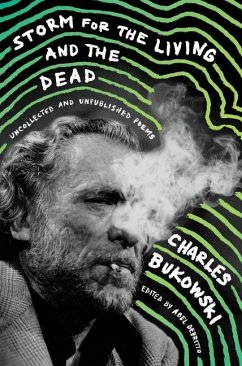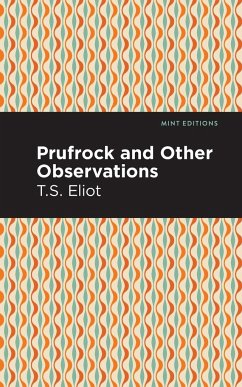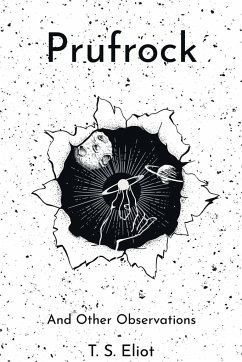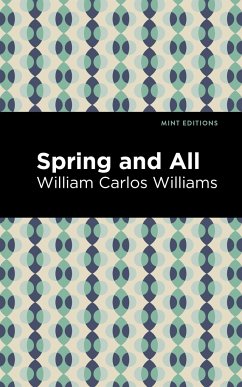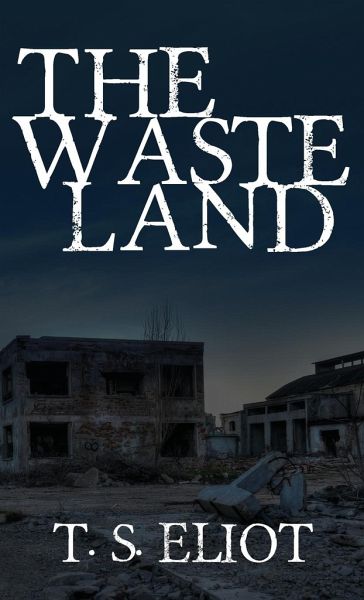
The Waste Land
The Original 1922 Edition
Versandkostenfrei!
Versandfertig in 1-2 Wochen
16,99 €
inkl. MwSt.
Weitere Ausgaben:

PAYBACK Punkte
8 °P sammeln!
Modernity has not managed to erase the restlessness that seems to be intrinsic to what it means to be human. T.S. Eliot's disillusionment with modern civilization is timelessly encapsulated in his famous 1922 poem, "The Waste Land." The book is laced with allusions, like, for example, some that reference the Grail legend and others informed by Fraser's "Golden Bough." Eliot would dedicate the piece to Ezra Pound. This is the original 1922 version of the book, as published by "Boni and Liveright." It includes the notes that Eliot himself compiled. This version is a facsimile which has been care...
Modernity has not managed to erase the restlessness that seems to be intrinsic to what it means to be human. T.S. Eliot's disillusionment with modern civilization is timelessly encapsulated in his famous 1922 poem, "The Waste Land." The book is laced with allusions, like, for example, some that reference the Grail legend and others informed by Fraser's "Golden Bough." Eliot would dedicate the piece to Ezra Pound. This is the original 1922 version of the book, as published by "Boni and Liveright." It includes the notes that Eliot himself compiled. This version is a facsimile which has been carefully reproduced for generations of reading pleasure.





